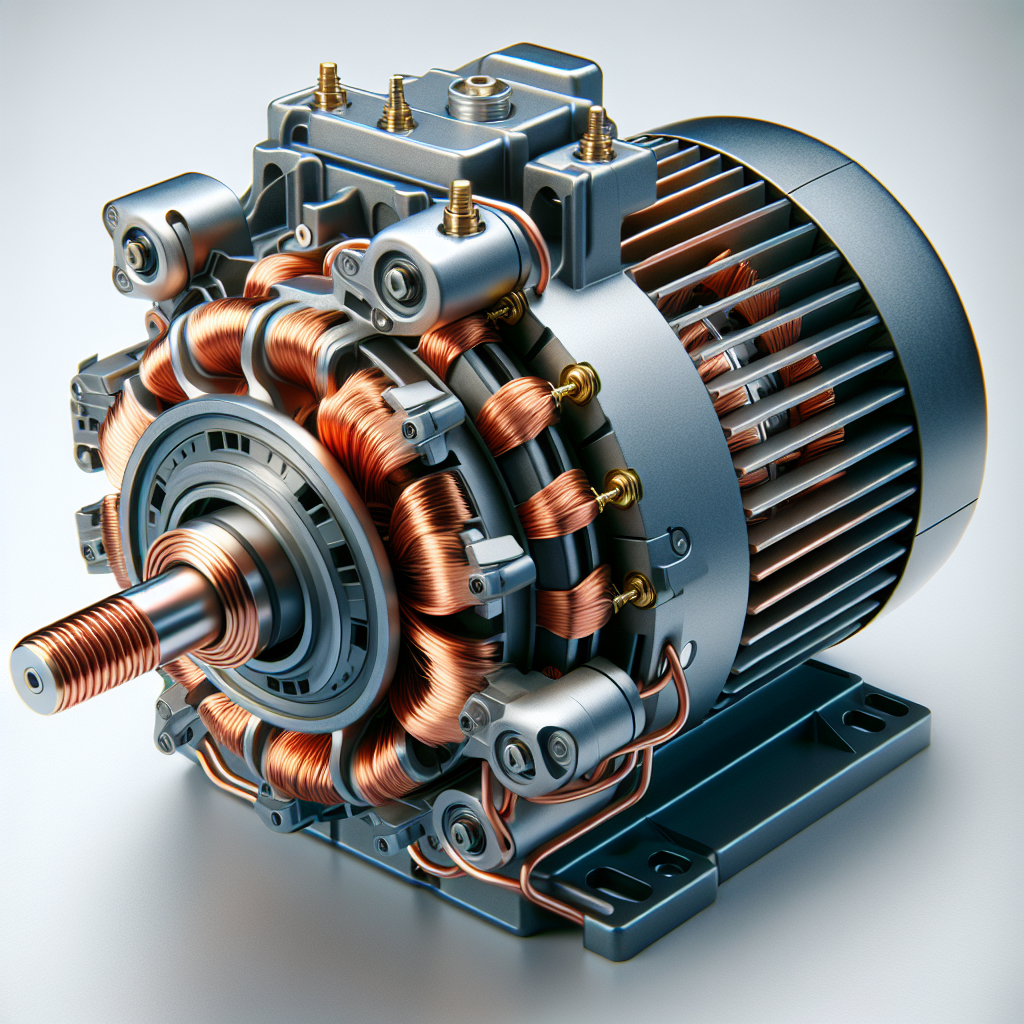Introduction to Electric Motors
Electric motors are essential devices used to convert electrical energy into mechanical energy. They play a crucial role in various industries and applications, from powering appliances in homes to driving heavy machinery in factories. Understanding electric motors is essential for engineers, technicians, and anyone interested in the field of electromechanical systems.
How Electric Motors Work
Electric motors operate on the principles of electromagnetism. They consist of a stationary part called the stator and a rotating part called the rotor. When an electric current flows through the stator windings, it creates a magnetic field that interacts with the magnetic field induced by the rotor, causing the rotor to turn. This rotation is what ultimately converts electrical energy into mechanical energy.
Types of Electric Motors
DC Motors
DC motors are commonly used in applications where precise speed control and torque are required. They can operate on both direct current (DC) and alternating current (AC) power sources but require a separate device, such as a converter or an inverter, for the AC supply.
AC Motors
AC motors are widely used due to their simplicity, reliability, and cost-effectiveness. They can be classified into two main types:
Synchronous Motors: These motors run at a constant speed that is synchronized with the frequency of the power supply. They are used in applications such as HVAC systems and industrial machinery.
Induction Motors: Induction motors are the workhorses of the industry, providing high efficiency and robust operation. They are widely used in applications ranging from household appliances to industrial pumps and compressors.
Advantages and Applications of Electric Motors
Electric motors offer numerous advantages over other types of engines, including high efficiency, low maintenance requirements, and environmental friendliness. They find applications in a wide range of industries, including manufacturing, transportation, and renewable energy systems. For example, in the automotive industry, electric motors are revolutionizing the way vehicles are powered, leading to reduced carbon emissions and increased energy efficiency.
Case Study: Electric Motors in Automotive Industry
One notable case study is the electric motor technology used in electric vehicles (EVs). According to John Voelcker, the Editor-in-Chief of Green Car Reports, "Electric drive motors are more efficient than internal combustion engines in terms of converting stored energy into useful work." EVs equipped with electric motors provide superior acceleration, lower operating costs, and zero tailpipe emissions, making them an attractive alternative to traditional gasoline-powered vehicles.
Factors to Consider when Choosing an Electric Motor
When selecting an electric motor for a specific application, several factors need to be considered:
Power Rating and Efficiency
The required power rating should match the load, and choosing a motor with high efficiency helps reduce energy consumption and operating costs.
Motor Control and Speed Range
Depending on the application, it is important to consider the required control options and the desired speed range of the motor.
Maintenance and Durability
Consider the maintenance requirements and the expected lifespan of the motor, as this can impact the overall operating costs.
Emerging Technologies in Electric Motors
The field of electric motor technology is constantly evolving, with ongoing research and development focused on improving efficiency, reducing size and weight, and enhancing performance. One emerging technology is the development of advanced materials, such as high-temperature superconductors, which can enable more efficient and compact motors.
Conclusion: The Future of Electric Motors
Electric motors have already made a significant impact on various industries, and their role will continue to expand. With ongoing advancements in technology and the increasing demand for energy-efficient solutions, electric motors are poised to become even more crucial in the coming years.
Call to Action: Join the Conversation on Electric Motor Technology
Engage with industry professionals, attend conferences, and explore research papers to stay updated on the latest developments and trends in electric motor technology. By joining the conversation, you can contribute to the ongoing innovation and adoption of electric motors in various industries.
Topics




